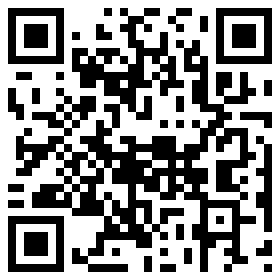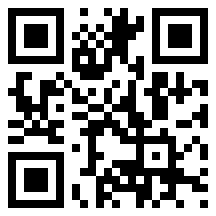Hold that thought
The Hold that Thought part was because all the ingredients of this post have been percolating around my brain for a few weeks and I'm under pressure to get them down in writing by the end of the month so I can propose some talks at an upcoming round of conferences this year. At some point you have to start writing about them. This post is my attempt at grabbing that tiger by the tail and wrestling it to the ground where I can get a grasp of all the ideas at interplay.
Thinking SMALL
Thinking SMALL is something I've been doing for some time. SMALL, or social media assisted language learning, is a term I coined ten years ago on the occasion of the 25th anniversary of CALL-IS at the 2009 TESOL conference, Denver (see slide 8 here):
http://www.slideshare.net/vances/celebrating-25-years-of-call.
I've laid claim consistently to the term since then, as I've documented here in links to a dozen blog posts and presentations from 2009 to 2013 where I mentioned SMALL. In 2014 I articulated my position on SMALL in a book chapter (Stevens, 2014), available at http://tinyurl.com/small2014.
Despite my frequent 'mention' of it over the years, my acronym never got traction, mainly because there were so many other good acronyms out there trying to make the same point. The point is, as Stephen Bax was arguing eloquently and prolifically at the time, computers had been normalized to the point that the 'computer' part of CALL was hardly any longer meaningful. Many replacements for the C word had been suggested: MALL (mobile assisted), TALL (tech assisted), TELL (tech enhanced), MALL (mobile assisted), BALL (blog assisted), SNALL (social network assisted) etc. and these often came up in conversations where I would put forward my own choice of acronym, but I could see that there was a variety of opinion on the matter, all with more or less equal merit, and therefore the best course of action was the one with least resistance, just continue using the term that everyone was familiar with and that everyone understood to be the umbrella term for all the sub-acronyms: CALL.
Meanwhile, I have continued to attend TESOL conferences each year, because I am invited to give a talk or join a panel, or am involved in Webcasting, and I plan to attend the TESOL conference in 2019 in Atlanta to appear on a panel as a result of the invitation worded as follows:
"Thank you for your proposal submission for the TESOL 2019 International Convention & English Language Expo. Your proposal, number 1020-004276, titled, "SMALL: Research, Practice, Impact of Social Media-Assisted Language Learning," has been included in the TESOL 2019 convention program, held on 12-15 March 2019 in Atlanta, Georgia, USA."
The title of this event was agreed to by all the co-panelists (Sandy Wagner, Susan Gaer, Elke Stappert, and Maria Tomeho-Palermino, and myself) following my suggestion that we adopt my acronym. And they all agreed :-) Traction at last!
Toward achieving that agreement, I had sent my co-panelists the link to my book chapter on SMALL at http://tinyurl.com/small2014. In order to work on our proposal, the panel collaborated on a Google Doc, the use of which, incidentally, is a prime example of how SMALL works (Stevens, 2015). The document can be edited by only the panelists but is shared publicly here:
https://docs.google.com/document/d/1buLaqwYcs4vdjE1vwg_qtiJ7ETQkL4Rw3_A5Qjfsa2s/edit?usp=sharing
As indicated in the above document, the following is my proposed contribution to the panel:
==============================
Thinking SMALL: A case for social media assisted language learning
CALL by definition is COMPUTER assisted language learning, but these days almost everything has a computer. As Stephen Bax used to eloquently and prolifically remind us, the 'computer' part of CALL has long been tending toward normalization. It no longer seems that the computer part of the equation carries significant weight. The weight has shifted to what computers DO.
What computers do best for language learners is to facilitate communication between them and other speakers of the target language, most predominantly through social media. I believe that SM assists LL more than does the old C, so I have been calling CALL SMALL at every opportunity and encouraging people to "think SMALL" in order to de-emphasize the computer part of CALL as we evolve toward SMALL.
Language is all about communication, and it is through meaningful communication that students of languages learn them, and to a much lesser extent through learning about the structure of the language (though of course, learning how to correctly shape communication and developing predictive knowledge of the language can help with understanding by helping to decode what people are saying). This in turn facilitates communication which in turn forms the substrate for language learning.
I am aware that there is a clamor of other acronyms to describe our field; e.g. TELL, MALL, SMLL etc etc and whenever I nudge SMALL to the fore it is usually drowned out by others suggesting equally qualified acronyms with the same passion as my suggestion. In my presentation I will summarize some of the arguments I have been making for SMALL over the years since I first started mooting the concept in 2009.
Also, a part of my message is that many of these tools and skills work through peers scaffolding one another to bring each other up to speed on the ins and outs. In a piece I just edited for Gavin Wu for the TESL-EJ On the Internet column (Wu, Junjie Gavin. (2018). Mobile Collaborative Learning in a Chinese Tertiary EFL Context.TESL-EJ, Volume 22, Number 2, Available: http://www.tesl-ej.org/wordpress/issues/volume22/ej86/ej86int/) Gavin mentions how this worked for him in this passage from his article:
"Collaborative work is very much needed and workplace collaboration is viewed as a necessary skill for current and future global employees (Jones & Hafner, 2012). In academia, cross-national collaboration is nothing new (e.g., the teacher/researcher in Hong Kong collaborated productively in Google Docs with the section editor in the United Arab Emirates on this piece of work), however, the question we may need to consider is to what extent our students are prepared for engaging in such collaborative work modes?"
Using Google Docs to arrive at a publishable version of an article in process appears to have been a new experience for Gavin, but after being exposed to it, he used it in his article as an example of the point he was making to begin with. So, we learn by doing, and pass these skills on through engaging our students in the same and similar techniques.
==============================
I am planning to attend several other conferences this year if my proposals are accepted. These will follow on the trajectory of my work in social CALL laid out in my book chapter on SMALL, as traced from Writing for Webheads and Webheads in Action (WiA) at the start of this century, http://webheads.info, and the three free, global WiA online convergences we mounted in 2005, 2007, and 2009, http://vancestevens.com/papers/evonline2002/wiaoc_index.htm. Another thread binding my work since the turn of the century has been my work with Electronic Village Online (EVO, http://evosessions.pbworks.com/) in which I have participated as both a coordinator and moderator of sessions since 2002.
One of my longest running sessions was Multiliteracies, which I conducted in one form or another from 2004 through 2014, and which was known in its latest renditions, once I had bit the koolaid of connectivism, as MultiMOOC, http://goodbyegutenberg.pbworks.com/.
My latest and most recent project, run under the auspices of EVO since 2015, has been EVO Minecraft MOOC (EVOMC, http://missions4evomc.pbworks.com/). The social interaction in this project has been best captured in the wide-ranging and graphically colorful interaction of its Google+ Community (G+C, https://plus.google.com/u/0/communities/112993649763396826671). Google plans to shut down this community in April of this year due to known hacking of the platform, apparently because they don't wish to address the threat of congressional oversight as has happened with Facebook since 2016 (and Google+ is not the financial mainstay of Google so they have decided not to defend it). Thus we will need to harvest as much data as we can from this platform before April in order to be able to use what we have built there in any analysis of how we fit in with the participatory culture that makes Minecraft so compelling for language learning.
We have already used blog tools experimentally in this effort; e.g. Mircea Patrascu's harvest of posts through the end of the year here, https://evomcarchive.blogspot.com/. We are presently engaged in our most current EVOMC session, #evomc19, so we will need to make a last harvest when the session ends in February. I hope to use the resulting data in my presentations, updating what we have learned about gamification of SMALL through this effort, as it has evolved over the years each year since 2015.
Two other conferences I'm planning to attend, assuming my proposals are accepted, are:
- PELLTA 17-19 April 2019 in Penang, https://ielt-con2019.webnode.com/, deadline Jan 31
- GLoCALL 2019/VietCALL Aug 8-10 in Danang, https://glocall.org/, deadline March 15
Blending social media and eLearning 3.0 into a substrate for hosting participatory communities of practice
The loss of Google+ Communities (G+Cs) is going to be a huge blow to thousands of communities of practice, who stand to lose not only their data and transaction histories, but their connections with one another that were made possible only through the community. We don't necessarily have a way of contacting the 350 people who are members of the G+C EVO Minecraft MOOC. Our links with each other, except in the many cases where we have formed personal bonds with our community members, is through their Google profiles, which, except when hacked, Google disguises as to true identities. This is sure to be the biggest blow to educational CoPs since Ning withdrew its free services in 2010 (Stevens, 2010) or the more recent demise of Wikispaces ( whose end came on July 31, 2018 for sites used purely for education).
It's also going to send all these CoPs out looking for new homes. EVO Minecraft MOOC has already started experimenting with Google Groups and Google Classrooms, though neither seem all that compelling. We have also been considering Moodle, since a couple of people in our group have experience and training on that platform, the platform is free an open source, and training opportunities abound. Other possibilities include (off the top of my head here) Canva, Schoology, Edmodo, Peer-to-peer university (P2PU), Wikiversity ... I'll add to this list as others occur or are suggested to me.
eLearning 3.0
The eLearning 3.0 part is a concept put forward by Stephen Downes in a recent MOOC he hosted by that name, https://el30.mooc.ca/, and which I described (to an extent) in a blog post here:
https://learning2gether.net/2018/12/17/learning2gether-with-stephen-downes-about-elearning-3-0/. The most interesting thing to me about this and all of Stephen's MOOCs is the platform he has developed for hosting his events, which he calls gRSShopper. The grasshopper flits about collecting content via RSS feeds and couches it all in a platform that runs personal learning environments (PLEs) such as MOOCs. The platform has evolved over the years since Stephen co-hosted the first MOOC in 2008, Connectivism and Connectivist Knowledge (CCK08, https://sites.google.com/site/themoocguide/3-cck08---the-distributed-course).
The portal pages for these early MOOCs seem to have disappeared from U of Manitoba's servers, but these early cMOOCs were proofs of concept that algorithms could manage the massive part of MOOCs, the large numbers of participants. The idea was that the participants could learn from one another without any direct intervention from a teacher directing that learning from on-high (in other words, knowledge was distributed through aggregation, not delivered top-down). I recall that Stephen's scripts aggregated all content tagged #cck08 and displayed it via his gRSShopper-driven portal script (and to prevent spam, he required bloggers in CCK08 to register their blogs, and the script would aggravate all tagged content only from trusted users).
Here's how Stephen describes gRSShopper. Visit https://grsshopper.downes.ca/ to learn more.
I don't recall exactly how much of the platform was in operation in 2008 but Stephen explained and demonstrated gRSShopper at an Innovation Forum presentation as a prototype for a PLE on Jul 07, 2009. The YouTube link is https://youtu.be/1W6frOLNgLU.
Stephen not only uses gRSShopper as the PLE driving all his MOOCs but invites others to use it freely. He explained in some detail during the eLearning 3.0 MOOC how it works and how anyone can do that. You can tease out the relevant material through the links on this page, https://el30.mooc.ca/course_outline.htm, which, if followed systematically, would allow you to replay the entire course. At the bottom of the page, you can see that the page itself is generated from gRSShopper (I did a ctrl-F search on that page to get the notice to highlight in yellow before making the screen capture).
Blending social media and eLearning 3.0 into platforms for online conferences
This project is one requested of me by the president of APACALL Jeong Bae Son. APACALL is considering holding online conferences. Jeong Bae and other colleagues in APACALL were participants in our WiaOC conferences, which at the time seemed to set a new standard for hosting conferences by using free Web 2.0 tools and ignoring pay walls, as was the norm for other online conferences taking place before that time. Nowadays, the standard is much more rigorous, but Jeong Bae asked me to look into how other conferences host their online events.
I've addressed this in a couple of blog posts.
- This one outlines some benefits of face-to-face conferences making a portion of their programs available online: https://advanceducation.blogspot.com/2016/04/can-paradigm-shift-in-conference.html
- And this one compares how IATEFL successfully puts almost their entire conference online these days; whereas TESOL have always restricted online access to theirs: https://learning2gether.net/2017/04/07/learning2gether-with-iatefl-2017-glasgow/
My report to APACALL, when I am able to focus on it, will combine an annotated listing of successfully run online conferences, an inventory of essential and desired features in mounting one's own, and some suggestions on how APACALL might move forward on the concept based on what is learned from reacting to the changing playing field given the considerations noted above.
& Etc.
Another project I have been working on obliquely is one proposed to me by Jennifer Verschoor a couple of years ago. Jennifer's idea is for us to put our heads together on developing coding as a focus for language learning. We created a rationale for it in Stevens and Verschoor (2017) but we haven't developed the notion much beyond that. In both our cases, we simply lacked time to work on it, Jen because she is in so much demand in her consultancy work, and me because I had a full-time job. Now that my full-time work has ended, that will be one less constraint on our time (once the other wheels alluded to in this post are set in motion and running of their own accord).
References
Stevens, Vance. (2010). The Ning Thing. TESL-EJ, Volume 14, Number 1: http://www.tesl-ej.org/wordpress/issues/volume14/ej53/ej53int/; pdf: http://www.tesl-ej.org/pdf/ej53/int.pdf.
Stevens, V. (2014). Connectivist Learning: Reaching Students through Teacher Professional Development" in Son, J.-B. (Ed.). Computer-assisted language learning: Learners, teachers and tools. APACALL Book Series Volume 3. Newcastle upon Tyne, UK: Cambridge Scholars Publishing. http://www.cambridgescholars.com/computer-assisted-language-learning/;
Also available at http://tinyurl.com/small2014.
Stevens, V. (2015). Finding Your Voice: Teaching Writing Using Tablets with Voice Capability. TESL-EJ, Volume 19, Number 3, Available: http://www.tesl-ej.org/wordpress/issues/volume19/ej75/ej75int/.
Also available at: http://tesl-ej.org/pdf/ej75/int.pdf; pp. 1-11 in pdf.
Stevens, V. & Verschoor, J. (2017). Coding and English Language Teaching. TESL-EJ, Volume 21, Number 2, Available: http://www.tesl-ej.org/wordpress/issues/volume21/ej82/ej82int/. Also available at: http://tesl-ej.org/pdf/ej82/int.pdf; pp. 1-15.
Stevens, V. (2014). Connectivist Learning: Reaching Students through Teacher Professional Development" in Son, J.-B. (Ed.). Computer-assisted language learning: Learners, teachers and tools. APACALL Book Series Volume 3. Newcastle upon Tyne, UK: Cambridge Scholars Publishing. http://www.cambridgescholars.com/computer-assisted-language-learning/;
Also available at http://tinyurl.com/small2014.
Stevens, V. (2015). Finding Your Voice: Teaching Writing Using Tablets with Voice Capability. TESL-EJ, Volume 19, Number 3, Available: http://www.tesl-ej.org/wordpress/issues/volume19/ej75/ej75int/.
Also available at: http://tesl-ej.org/pdf/ej75/int.pdf; pp. 1-11 in pdf.
Stevens, V. & Verschoor, J. (2017). Coding and English Language Teaching. TESL-EJ, Volume 21, Number 2, Available: http://www.tesl-ej.org/wordpress/issues/volume21/ej82/ej82int/. Also available at: http://tesl-ej.org/pdf/ej82/int.pdf; pp. 1-15.




 Tag in your DEL.ICIO.US account
Tag in your DEL.ICIO.US account











No comments:
Post a Comment